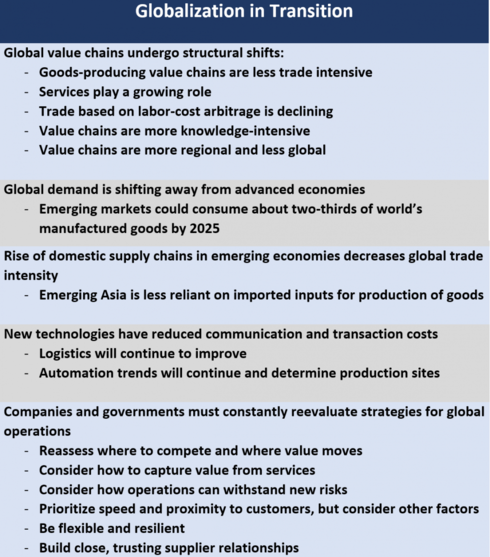COVID-19 Not Globalization Crisis: Financial Times
Global and community leaders most understand the nature of the COVID-19 crisis to develop effective strategies. The crisis calls for global cooperation rather than competition. People may pursue fewer person-to-person connections, but will still rely on global communications and data on best practices. “The virus has revealed the hidden costs and fragility of global supply chains, triggering a ‘backlash’ to globalization,” explains Robert Armstrong for Financial Times. “But companies still see the advantages of global trade, consumers still benefit from it, and it still makes the world a safer place.” Armstrong suggests that companies go beyond priortizing costs and consider security and a range of risks with diverse and multiple regional supply chains. Armstrong describes how the Fukushima nuclear crisis highlighted the value of a range of specialization around the world for microchip production. While sourcing close to demand is reasonable, diversity in supply chains is useful because a crisis can emerge in any location. “Globalisation binds our fortunes together,” Armstrong concludes. “That these bonds makes us collectively richer is clear, given that the countries which have embraced global trade, along with education and investment, are the most prosperous.” – YaleGlobal
COVID-19 Not Globalization Crisis: Financial Times
Coronavirus is a global crisis, not one of globalization – the distinction matters, or leaders will draw wrong lessons
Wednesday, March 18, 2020
Read the essay from the Financial Times that analyzes the COVID-19 crisis.
Robert Armstrong is the FT’s chief editorial writer.

Prescient: “Today companies face a more complex set of unknowns as the postwar world order that held for decades seems to be giving way.” Read the report from the McKinsey Global Institute on “Globalization in transition: The future of trade and value chains.”
Financial Times
Copyright The Financial Times Limited 2020. All rights reserved.